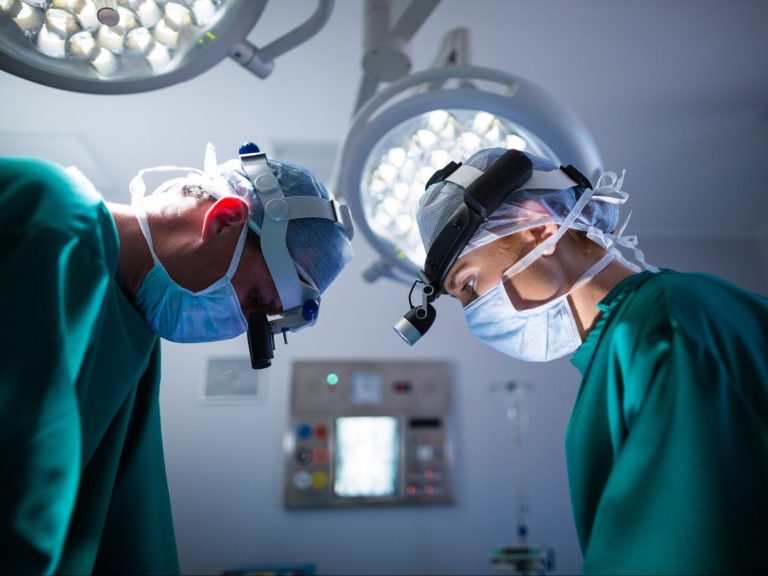Prof. Rejdak: “Robots don't have to resemble humans” – Wprost talks about science and medicine

Work is underway to create specialized robots that will be able to help in everyday life, communicate with patients, and call for help if necessary. The future of neurology development is not only drugs, but also modern medical devices – says Prof. Konrad Rejdak, president of the Polish Neurological Society and one of the creators of a very modern robot.
The da Vinci robot has revolutionized surgery – surgeries are increasingly performed using it. However, modern technologies, including robots, can also be perfect for caring for patients with neurological diseases, e.g. after a stroke, Alzheimer's disease, Parkinson's disease.
Listen to the entire conversation with prof. Konrad Rejdak with editor Katarzyna Pinkosz:
Such devices are already being created and are being used more and more often. These are both simple robots that help in care, e.g. by changing the position of a lying person who is unable to do it themselves, as well as very complex devices that can communicate with the patient, accompany him in everyday activities, and support rehabilitation.
Friendly, caring, but… not humane
Prof. Konrad Rejdak, neurologist, head of the Department of Neurology at the Medical University of Lublin, was the head of the research group in an international consortium creating a robot for patients with dementia under the Horizon 2020 grant (RAMCIP).
– Before creating the robot, we analyzed opinions: we asked whether it should resemble a human or more like a medical device. People with dementia are a special group, they gradually lose their understanding of the world and the ability to communicate. Most respondents declared that they would prefer the device not to be confusingly similar to a human, e.g. so as not to arouse the feeling of fear that there is someone next to us resembling a human, who is never tired and has superhuman strength. Therefore, our device was an intermediate solution; it moved on wheels, had a monitor resembling a head, images of a simplified face were displayed on it, like from a cartoon, but there was no doubt that it was not a human – says Prof. Rejdak.
The robot was intended to accompany a person with dementia on a daily basis, helping them in everyday activities, e.g. preparing a meal, dressing, and rehabilitation. It was able to react if the patient did something incorrectly that could be dangerous to his health (e.g. if he did not turn off the gas tap, the robot performed this action for him). He could alert the caregiver if, for example, the patient had fallen and was lying on the floor.
– It was designed in such a way that in such a case he would first ask what happened. If he got an answer, he didn't react; if he did not receive an answer or it was unsatisfactory, he alerted the supervisor – says prof. Rejdak. The robot could also, for example, bring a cup, give a tablet, help with physical or speech rehabilitation.
The robot prototype created by a team of scientists is currently used in a center in Barcelona, which includes, among others, people with dementia. – I am glad that this pioneering project is being developed and that it also has its “successors”. I am also glad that a Polish company from Lublin also contributed to its development; in Poland we have great scientists and engineers who can participate in the creation of such complex projects – says prof. Rejdak.
Technology for patients
Prof. Rejdak points out that modern technologies accompany us in our everyday lives; Examples include home security devices and vacuum cleaners that clean themselves. Therefore, it is now worth using new technologies to help the sick. The need is huge because we are an aging society and more and more people will need support. – Of course, the machine will not replace a loved one or their empathy, but it can be a great help to families or, for example, hospital staff – emphasizes Prof. Rejdak.
Robots can be helpful both for patients after a stroke and for those with progressive neurodegenerative diseases, such as Alzheimer's disease: here, however, the degree of complexity of the robot should be even greater, because it would have to adapt to the phases of the disease. Another big legal and ethical problem is the question of who would be responsible for a mistake made by the robot. This is an important legislative issue to address now.
– Patient safety is the most important thing, but in my opinion it is the near future when we will have devices that will communicate with the patient and fulfill his requests. They will not replace a person, but they will be a great support for him – says prof. Rejdak.
Robots resembling a dog, cat or seal can also help people with dementia or Alzheimer's disease by giving them a companion.
Can robots be created in Poland?
In Poland, it has not been possible to produce a robot that is effective in surgery, but rehabilitation robots that help patients are being created. According to prof. Rejdak, it is also possible to create Polish robots to help patients with neurological diseases. – We have the potential of excellent scientists and engineers; cooperation is necessary. We can show the needs, engineers must create devices, but to introduce them to the market, funds and cooperation with entrepreneurs are necessary, because clinical tests, standardization and obtaining certificates are necessary. However, social needs are enormous, so it is worth working to ensure that such devices are created, also in Poland – emphasizes Prof. Rejdak.






